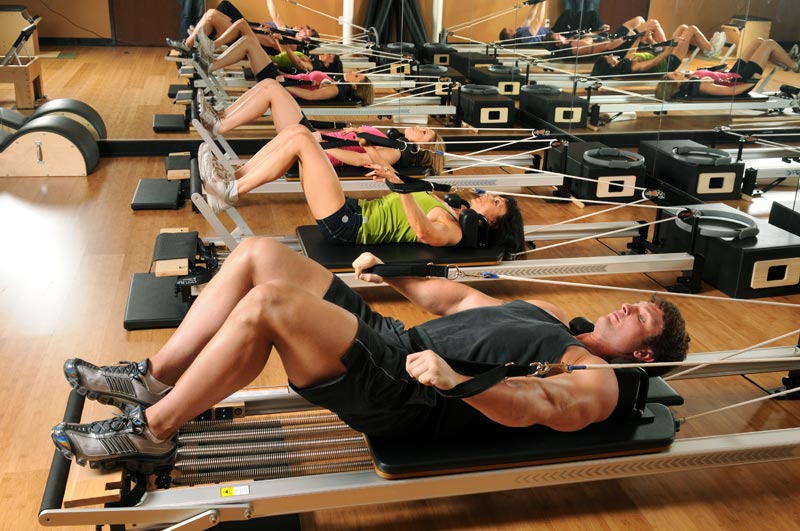by Answer is Fitness on June 22, 2019

Joseph Pilates created his exercises as a way to increase overall fitness for anyone. Because graceful flowing movements are part of the Pilates exercises, and because they build strength without building bulky body mass, Pilates was quickly adopted by dancers and gymnasts. Runners didn't consider the benefits of Pilates until it was more widespread.
For example, runner Chaz Nasca says, "After the first few months running, I added Pilates to my workouts to increase my flexibility and strength. I find that it reduces my muscle soreness and my knees tend to feel better. I think the loosening of my muscles reduces the strain on my ligaments." While all runners should stretch before they run, some runners' training programs don't focus enough on stretching. Strength and endurance training alone won't provide the progressive stretching that regular Pilates workouts will. Insufficiently stretched muscles can cause many problems for a runner, slowing them down at best, or leading to a serious injury at worst. Just like stretching, Pilates helps runners focus on their breathing. This benefit is synergistic with the stretching because warming up the core helps the intercostal muscles that connect the ribs. This makes it easier to breathe smoothly using all available lung capacity.
The focus on breathing helps devotees in other sports as well. Runner Erica Turner Nasca says, "Pilates seems to help with both strengthening and stretching muscles, so I definitely notice a difference in any athletic endeavor I attempt, whether it's running or soccer. During a 'no-Pilates' week, my muscles seem to remain sore for a longer period of time following other sports."
A runner endures constant impact while running. The force of each step travels up from the legs to the lower back and rib cage. The core strength acquired through Pilates not only makes those areas better able to deal with the impact, it improves body alignment and balance, helping the runner distribute the force of running throughout the body more efficiently, instead of just dumping it all onto a few muscles. As a result, they won't feel nearly as sore after a hard run.
If you're a runner and would like to incorporate Pilates Training to your regular runner's training program, contact Answer is Fitness.
Source:
howstuffworks.com
< Go Back to Blog






